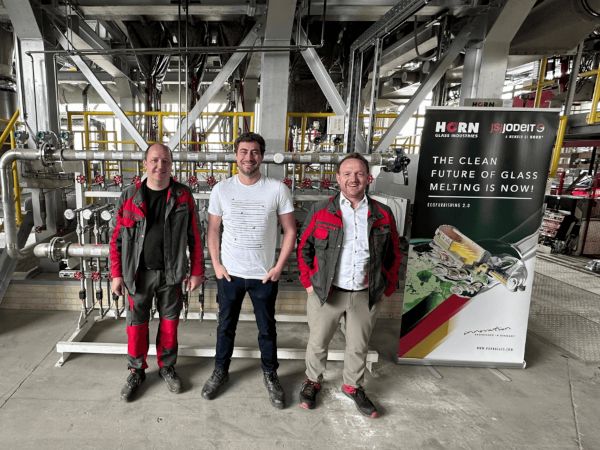Post Time:Nov 20,2024Classify:Industry NewsView:1054

Horn Glass Industries
By targeting the most energy-intensive part of the glass production process, namely the melting of the glass, ZeroCO2Glas opens up the possibility of saving a particularly large amount of energy and greenhouse gases.
The ZeroCO2Glas project is a consortium involving experts from the industry, including furnace technology specialist HORN Glass Industries AG, glass manufacturer Wiegand-Glas, RWTH Aachen University as well as the International Partners in Glass Research (IPGR*). By targeting the most energy-intensive part of the glass production process, namely the melting of the glass, ZeroCO2Glas opens up the possibility of saving a particularly large amount of energy and greenhouse gases. The project focuses on the container glass industry, which at just over 50% represents the largest share of glass production in Germany.
The overall goal of the ZeroCO2Glas project is to use an all-encompassing approach to develop a revolutionary glass melting process in connection with a new type of glass melting tank, with which glass for container production can be melted in a CO2-neutral manner and with significant energy savings. The duration of the project was three years and the project is funded by the BMWK with a maximum of €8.38 million with a total project volume of approx. €14.94 million.
As technology partner, HORN supplied the entire equipment for the new 2.4 t/d hybrid furnace, the combustion and the process control system as well as the complete construction work for refractory material and steel. The new, innovative furnace, which was set up as part of the project in Aachen, Germany, is designed as a hybrid furnace with hydrogen-oxy and natural gas-oxy firing, as well as electrical heating. The forehearths can also be operated with either natural gas/O2 or H2/O2. Together with the corresponding peripherals, the furnace represents a fully-fledged container glass site.
The outstanding feature of the ZeroCO2Glas project is that CO2 is completely avoided both on the energy input side and on the raw material side. In comparison, other projects aim exclusively at CO2 avoidance on the energy input side.
The new hybrid furnace celebrated first glass on 28th October 2024. The experience gained from the test facility will make glass production even more sustainable and further reduce the CO2 footprint.
Our special thanks go to all the project partners involved for the trust they have placed in us and for working with us as partners. We look forward to further exciting and promising projects in and for the glass industry.
*International Partners in Glass Research (IPGR) was founded in 1984 with the aim of increasing the competitiveness of glass in the packaging industry through research and development programs. IPGR currently consists of ten members from all over the world: BA Glass, Bucher Emhart Glass, Fevisa, Gallo Glass Company, Nihon Yamamura Glass, Orora Ltd, Sisecam Glass Packaging, Stoelzle Glass Group, Vetropack Group, Vidrala Group and Wiegand-Glas
Source: Horn Glass IndustriesAuthor: shangyi
PrevSisecam increases glass packaging output by 10%
Glassman Bangkok to highlight decarbonised technology for the glass industryNext